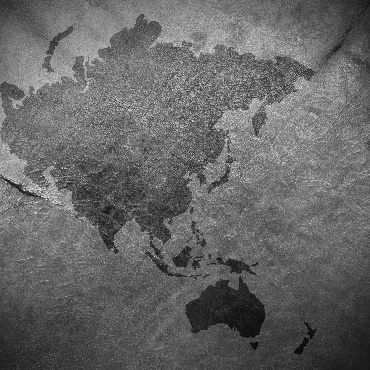CHINA AND KENYA HAVE A FISH FIGHT...
A trade row has erupted between China and Kenya over fish imports. At a conference on small and medium enterprises in Nairobi on October 15th, Kenyan President Uhuru Kenyatta called for limiting imports of Chinese fish. "While we have good trade relations with China, we must act to protect the interests of our people. If it is fish from China that is causing misery to our fishermen we will creatively impose conditions to stop the exports to safeguard the local industry," the president said. Imports of Chinese tilapia sell for around $2 per kg, compared with $3 per kg for local fish. In 2017, Kenya imported fish worth $12 million, up from $10 million in 2016. China's chargé d'affaires to Kenya was quoted in The Nation as warning that a ban amounted to a "trade war," and put at risk funding of phase two of the Standard Gauge Railway, a railway linking Uganda to Kenya's port of Mombasa. Kenya's Trade Cabinet Secretary Peter Munya has since said Chinese fish imports are not banned. (The Nation, October 31, 2018; China Ocean Dialogue, November 30, 2018)
...AND MOVE TO ADDRESS A MASSIVE TRADE DEFICIT...
Last year, Kenya imported $3.84 billion worth of goods from China, while exports from the African nation to the PRC amounted to $98.3 million. That trade deficit is starting to take a political toll. Meeting recently with Chinese President Xi Jinping, Kenya's President, Uhuru Kenyatta, called for "an open Chinese market for Kenya's exports." This and his aforementioned concerns about Chinese fish imports produced a flurry of meetings between Chinese and Kenyan officials resulting in the formation of a joint committee to address trade barriers between the two nations. To right the balance, China has agreed to a MoU on Sanitary and Phyto-Sanitary requirements, which for the first time will allow Kenyan fruits, nuts, avocados, mangoes legumes, flowers, vegetables, stevia, meat, leather and leather products into China. Nairobi has also called on Beijing to review visa requirements to allow Kenyans business people to get a visa on arrival. (The Star, November 4, 2018; Kenya Broadcasting Company, November 14, 2018)
...AMID AN EMERGING CORRUPTION SCANDAL
Three senior Chinese officials working for the China Road and Bridge Corp. – the operator of Kenya's Standard gage Railway – have been arrested for attempting to bribe investigators with $5,000. Detectives uncovered a multi-million-shilling ticketing fraud in which the insiders skimmed off revenue from each trip. The three Chinese officials expected to appear in court are the officer in charge of transport at the Mombasa terminal, the security officer, and a translator. The ticketing scam involved manipulating the complex booking system operated by CRBC staff to split the ticket revenues between the Chinese railway operator and the conspirators. They created refunds for tickets issued to passengers after they were already on board and channeled an estimated $10,000 each day in refunds into their own accounts. Kenya Railways officials became suspicious of the unusually high number of refunds and millions in lost revenue since the service was launched in June 2017. Insiders in the ticketing office also colluded with a major travel agent who claimed to be offering bulk booking for tourists to block seats in the online system and resell them at double or triple the prices. (The Nation, November 25, 2018)
CHINA'S PRESENCE BECOMES A POLITICAL ISSUE IN ZAMBIA
A spate of violent attacks has taken place against the Chinese community in Zambia. Anti-Chinese sentiment in Zambia has grown as the government increasingly hands lucrative contracts to the country while borrowing huge sums from Beijing. In early November, anti-Chinese rioting occurred in Buchi and Kawama when workers protested after hearing rumor that a Zambian timber company had been sold to Chinese buyers. In October, Chinese shops in the mining town of Kitwe were looted after a Chinese employee accidentally shot a Zambian worker. Home Affairs Minister Stephen Kampyongo blamed the unrest on opposition leader Hakainde Hichilema, whom he said "made slanderous and untruthful statements...that culminated in the looting of businesses owned by Chinese." Vice President Inonge Wina told parliament: "There are riots that start at universities and other learning institutions but those against the Chinese are politically motivated. xenophobic attacks on Chinese [are] politically motivated because of the utterances that politicians make." (Agence France Presse, November 9, 2018)
...AS LUKASA SCRAMBLES TO PRESERVE TIES
Zambian opposition leader Haikande Hichilema has been detained for making public anti-China statements that incited the protests in Kitwe over the potential sale of Zaffico, Zambia's timber company. "Some people in Kitwe of the Copperbelt province were misled by the false allegation about the takeover of the Zambia's state-owned timber company by the Chinese side," a foreign ministry spokesman has said. "Some Chinese shops were looted but no one was injured. After that happened, the Chinese side immediately lodged representations with Zambia, and the Zambian side said it would take measures to safeguard the safety of the Chinese in Zambia. The Chinese enterprises' investments in Zambia have generated enormous job opportunities and boosted the socioeconomic development locally, to which we all bear witness." Chinese interests in Zambia have become increasingly controversial amid a debt crisis and mounting Chinese loans. In September, there were rumors that Zesco, Zambia's national electricity supplier, would be sold to Chinese interests. (Africa Times, November 23, 2018)
Want these sent to your inbox?
Subscribe
China Reform Monitor No. 1354
Related Categories:
Democracy and Governance; International Economics and Trade; Corruption; Africa; China


